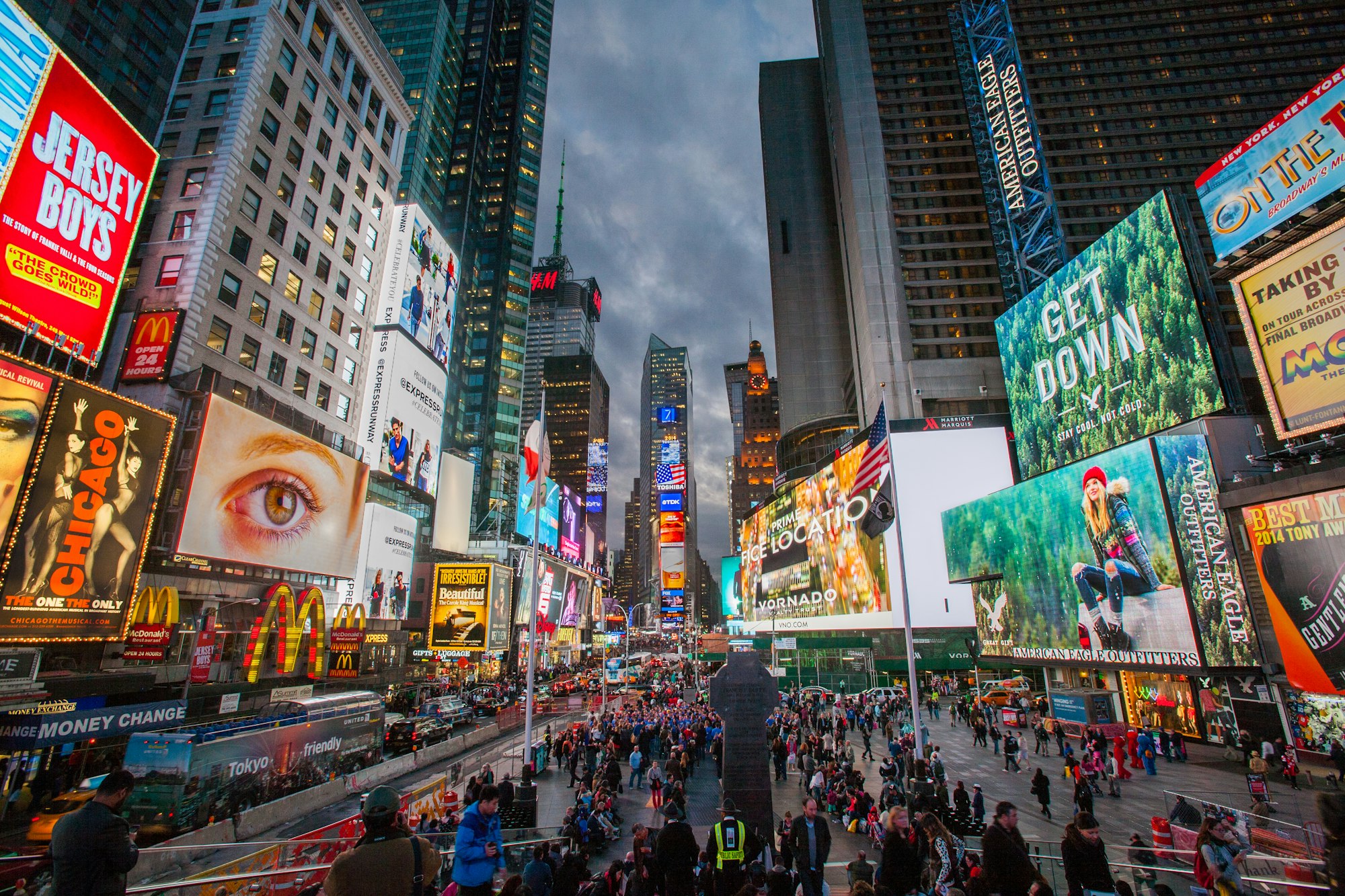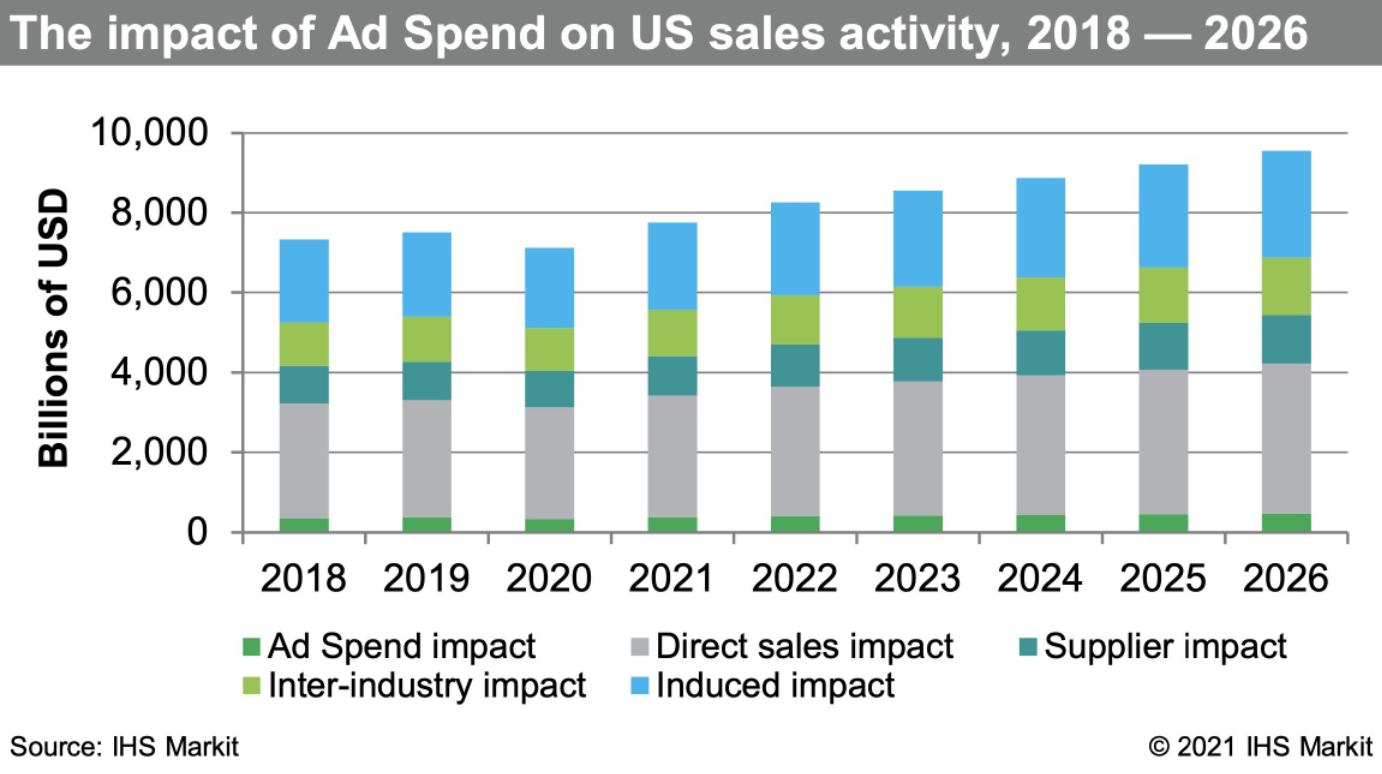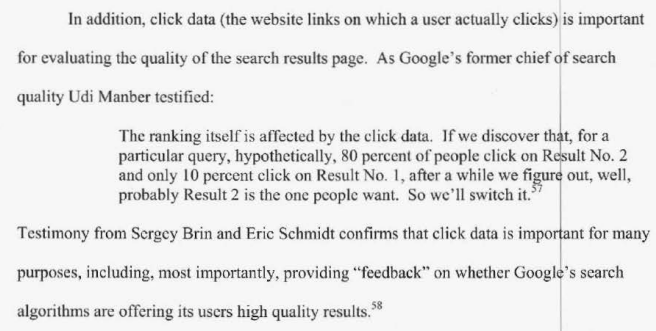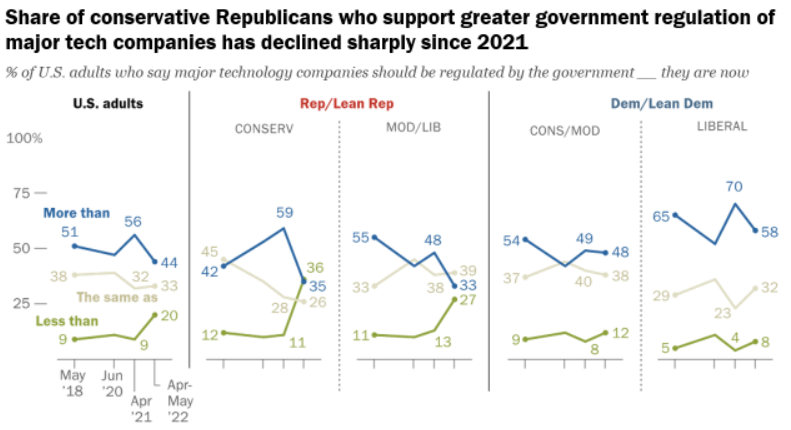Ads 20% of GDP, CTR and Rankings (Again), Antitrust Reform Fading?

Note: Monday is Memorial Day in the US; we're taking the day off. We'll be back next Wednesday. Have a great weekend.
Report: Ads Drive ~20% of US Economy
Advertising is great for the economy. That's the conclusion from an extensive analysis of ad spending and its economic impact. Of course the sponsor of the research is The Advertising Coalition, an amalgam of ad-industry trade groups, such as the ANA, 4A's and others. The analysis was performed by IHS Markit. The headline literally is: ad-spending was responsible for $7.1 trillion in sales (direct and indirect) and supported 28.5 million jobs last year. Accordingly, the report claims "the total impact of advertising and its multiplier effects represented 18.5% of U.S. GDP." It also argues that for every dollar of ad spending there are roughly $21 of sales. That's a huge ROI; if only advertising were that effective for the advertisers themselves.

Our take:
- The report uses an expansive methodology, including "ripple effects" and "multiplier effects," to maximize advertising's impact.
- It relies heavily on high-level economic data (e.g., total consumer spending) and makes assumptions about how much is ad-influenced.
- The industry employs lots of people; US government data says more than 250K. But the idea that ads support 28M jobs is overreach.
CTRs and Google Rankings – Take Two
SEOs have long debated whether "behavioral signals," such as clicks, impact search rankings. We wrote about this last week after LocalSEOGuide produced data arguing CTR (or dwell time) was impacting rankings. After that a subscriber called our attention to a 2012 FTC memo supporting an earlier Google antitrust investigation. The document is 160 pages long and focuses on alleged anti-competitive behavior. But on page 14 (below) is this discussion: "[Google's] Udi Manber testified: 'The ranking itself is affected by the click data. If we discover that, for a particular query, hypothetically, 80 percent or people click on Result No. 2 and only 10 percent click on Result No. 1, after a while we figure probably Result 2 is the one people want. So we'll switch it.'" On the same page the FTC says, "testimony from Sergey Brin and Eric Schmidt confirms that click data is important for many purposes..." including rankings.

Our take:
- Footnote 58 cites various statements/transcripts from Google executives beyond the quotes in the main body of the text above.
- Larry Page is quoted in the footnote: "Click-tracking is used to track which search results a user selects. That information then feeds back into our search ranking." That "testimony" was from 2008.
- Google has repeatedly denied CTR or other behavior signals impact rankings. The FTC memo is a decade old. But these quotes/citations are pretty compelling support for the "pro-CTR" argument.
Is Antitrust Momentum Fading?
Multiple antitrust bills are making their way through Congress, the American Innovation and Choice Online Act chief among them. One of the things that bill would do is prevent big platforms from favoring their own content, products or services over competitors (e.g., Google Maps). But the momentum behind these and possibly other legislative efforts appears to be in jeopardy. Some Democrats are reportedly getting nervous ahead of midterm elections. While that might not doom the Innovation and Choice Act, passage is now less certain. Public support, which had been strongly supportive of antitrust regulation is also turning softer. One poll by Hart Research Associates (.pdf) still shows majorities approve of new antitrust regulation. However a new Pew survey shows that now only a minority (44%) favor regulation, with even softer support from Republicans (35%).

Our take:
- Europe has passed two significant laws: The Digital Services Act and Digital Markets Act, sweeping reforms that will reverberate globally.
- Even if all legislation in Congress stalls there are still DOJ and FTC antitrust lawsuits and state Attorneys General suits ongoing.
- The major platforms won't escape totally unscathed – especially if courts do wacky things like designating them "common carriers" – but they may now avoid existential blows.
Short Takes
- Google Lens on desktop now accessible via right click.
- Neeva: We do better than Google except for tail queries.
- Democrats urge Google to stop capturing individuals' location data.
- FTC spanks Twitter for using "security data" for ad targeting.
- Twitter investors sue Elon Musk for "manipulating the market."
- DuckDuckGo blocks third party trackers, except for Microsoft's.
- Amazon Style physical retail store opens in Los Angeles.
- While other retailers lower 2022 guidance, dollar stores boost theirs.
- Prompted by regulators, Meta updates privacy policy and TOS.
- Tech industry lobbyists coordinate to water down privacy laws.
- Instacart to hide shopper ratings by cranky customers.
- The video streaming market has peaked, according to survey.
- Study: Algorithms will potentially impact human culture.
- Tesla to open a 24-hour diner in Los Angeles.
Listen to our latest podcast.

How can we make this better? Email us with suggestions and recommendations.

